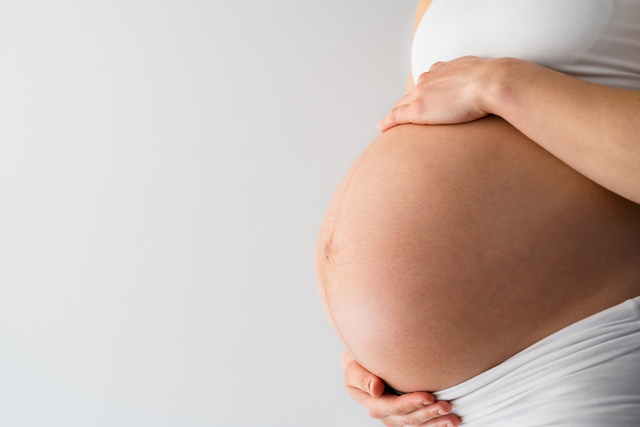Scared of giving birth? You’re not alone, but staying positive could ease your fears.
Up to 60 percent of women experience some fear about giving birth, but a new study shows why some women are more likely to stay calm and confident in the lead-up to childbirth.
In a global first, researchers from Robert Gordon University in Scotland and the University of South Australia (UniSA) investigated the factors that helped ease childbirth fears rather than stoke them.
They surveyed 88 pregnant women in their third trimester before attending antenatal classes in north-east Scotland.
Researchers used the Warwick-Edinburgh Mental Wellbeing Scale to measure the link between mental wellbeing, a woman’s belief in her ability to manage the challenges of labour, and fear of childbirth.
While 12 percent exhibited ‘severe’ fear of childbirth, those who were more positive, confident, and in meaningful relationships reported fewer concerns.
Lead author Dr Katrina Forbes-McKay said the results showed antenatal care could be improved to foster confidence, enhance positive emotions, and support healthier births.
“While many studies have explored the negative effects of childbirth fear, including prolonged labour, emergency caesareans and postpartum mental health issues, there has been little research into what protects women from experiencing those fears,” Dr Forbes-McKay said.
“Our findings highlight the need for antenatal care that doesn’t just teach women what to do during labour, but also empowers them to believe they can do it.”
Co-author, UniSA Professor Tracy Humphrey, said the study found that a woman’s sense of mental wellbeing was the strongest predictor of how fearful she felt about giving birth.
“This includes having a sense of purpose, emotional positivity, and meaningful social relationships – all things that are often overlooked in maternity care,” Prof Humphrey said.
The study called for antenatal programs to shift from a solely medical model to one that builds self-belief, recommending that childbirth education:
– Foster confidence in labour techniques such as breathing, visualisation, and relaxation;
– Enhance psychological wellbeing by supporting social connection, purpose, and satisfaction; and
– Embrace an approach focused on wellness rather than risks.
Robert Gordon University midwifery lecturer Dr Mo Tabib led the study as part of her PhD, under the supervision of Dr Forbes-McKay and Professor Humphrey.
“By addressing fear of childbirth through psychological and educational interventions, we not only support women to have more positive birth experiences, but potentially reduce medical interventions and improve outcomes for mothers and infants,” she said.
The researchers are now calling for larger, multi-site studies to validate these findings across diverse populations.








